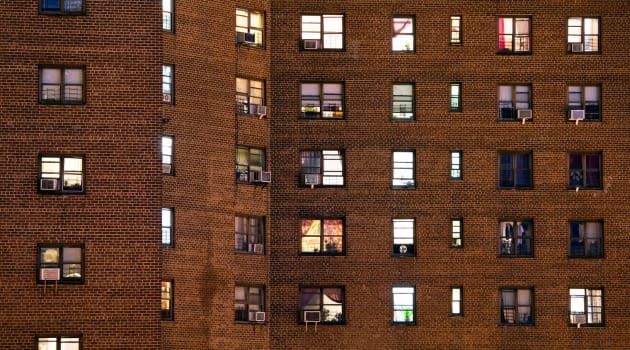1 in 5 Renters Asked for Rent to Be Postponed or Canceled in Last 6 Months

While it is challenging to find anyone whose life has been unscathed by the pandemic, renters are among those particularly hard hit.
Nearly a quarter of renters — 22% — have asked their landlord for a postponement or cancellation of rent at some point in the last six months, according to new research from Entrata, a developer of property management software. Their reason: The pandemic was having an impact on their finances.
With 17% of respondents saying they were unable to pay rent at all, the pandemic could lead to long-term financial consequences for some.
Some renters lacked financial stability before the pandemic
Even before the COVID-19 outbreak led to job losses and furloughs, some renters had little in the way of a financial cushion:
20% said they had no savings at all
39% reported having less than $1,000 in savings
Women were more likely than men to have little money saved up, with 25% of female renters having no savings before the pandemic compared with 15% of men.
Once the pandemic started, 78% of renters cut their spending in an effort to stay on top of costs. Respondents reported taking the following actions:
Dining out less (23%)
Delaying or rescheduling leisure travel (22%)
Spending less on clothes (19%)
Cutting back on entertainment (18%)
But even after reducing their spending, some renters were still coming up short on their rent. Of those who could not pay their full rent during the outbreak, 41% said it was because of a job loss. Of those who lost a job, only 29% said they expect to return to their job once the pandemic subsides.
Renters turned to CARES Act relief, credit cards
Some struggling renters were able to benefit from government support. More than half of renters — 59% — said they used the full or partial amount of the economic impact payment they received as part of the Coronavirus Aid, Relief, and Economic Security Act (CARES Act) to pay their rent.
Others turned to different options, such as credit cards. Nearly 3 in 10 renters — 29% — said they have paid their rent with a credit card during the pandemic. Of those renters, 12% said this was because they had no other way to pay their rent. Unfortunately, those who use a credit card to pay their rent because they can’t afford to do so any other way also risk long-term damage to their credit scores.
For 42% of renters, the pandemic has caused them to rethink short-term housing plans. For example, 16% have delayed homeownership and renewed a current lease instead. That finding falls in line with an earlier survey that suggested the pandemic was contributing to a widening in the homeownership gap, as some consumers pushed back their plans to buy their first homes. Other housing choices that renters made because of the pandemic included:
Moving to a less expensive apartment (13%)
Moving in with relatives or friends (7%)
Those who were married or in domestic partnerships were more likely to move to a less expensive apartment, with 20% doing so compared with 8% of renters who were single.
Methodology: Entrata commissioned a survey of 1,037 adult renters between Aug. 11- Sept. 3, 2020.

 Yahoo Finance
Yahoo Finance 